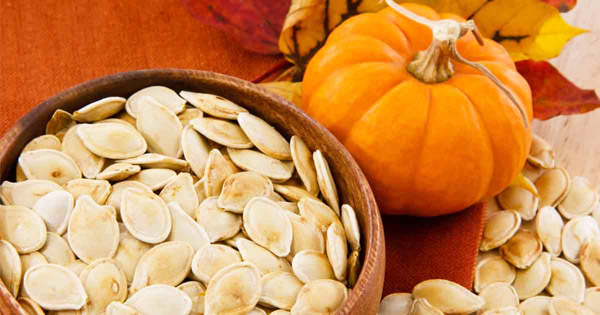
Pumpkin products proliferate this time of year — and not just for traditional pies and breads, but for whimsical goodies that may not live up to the pumpkin’s healthy reputation. Appealing to palates are pumpkin donuts, pumpkin ice cream, pumpkin latte — even chocolate pumpkin candy. “If you believe the sales pitch, the pumpkin is the happiest, healthiest food ever,” said Suzy Weems, Ph.D., registered dietitian and professor of nutrition sciences in Baylor University’s College of Health and Human Sciences. But a balancing act is important, Weems said.
Pumpkin pluses:
• Fiber? Check. This is a bonus dieters who want a full feeling.
• Zeaxanthin? Yes. A boon as a weapon against age-related macular degeneration and impaired eyesight.
• Low in cholesterol and high in Vitamin A? True, which makes for healthy skin and eyes and also an aid in fighting cancer.
• Heart-healthy phytosterols? They’re in pumpkin seeds.
• Magnesium, manganese, copper, phosphorus, protein, zinc and iron? “On the USDA/FDA rating schedule, pumpkins are a good source of all those,” Weems said. The combination makes a veritable “cocktail” for energy, growth and a top-notch immune system.
Pumpkins and the down side:
• Pumpkin snacks: “Pumpkin-laced candy is still candy,” Weems said. “Pumpkin seeds are good for making you feel full, but the fat doesn’t disappear when you roast and eat them.”
• Pumpkin desserts: “Be sure to notice how much pumpkin is really is in it, that it’s not just the flavoring.”
• Pumpkin in coffee or for breakfast: “A pumpkin latte is not going to mean any fewer calories if it’s made with a full-fat milk or syrup. And pumpkin doughnuts still have sugar.”
Pumpkin is “delightful — but it’s not a magic bullet,” Weems cautioned. “Take a look at the total calories: If you have diabetes, you look at the sugar and total carbohydrates; if you have cardiovascular disease, look at the fat. Always be sure to read the container or the wrapper.” Suzy Weems has professional experience in wellness, weight management, diabetes care, eating disorders, cardiovascular health and sports dietetics. Her experience in sports nutrition has ranged from athletes at the pediatric level to those at NCAA Division I premiere teams to improve player performance. Weems is a consulting dietician for hospitals and extended-care facilities across Texas, as well as a former chair of the American Dietetic Association’s legislative and public policy committee and a past president of the Texas Dietetic Association.
The study done by Baylor University.